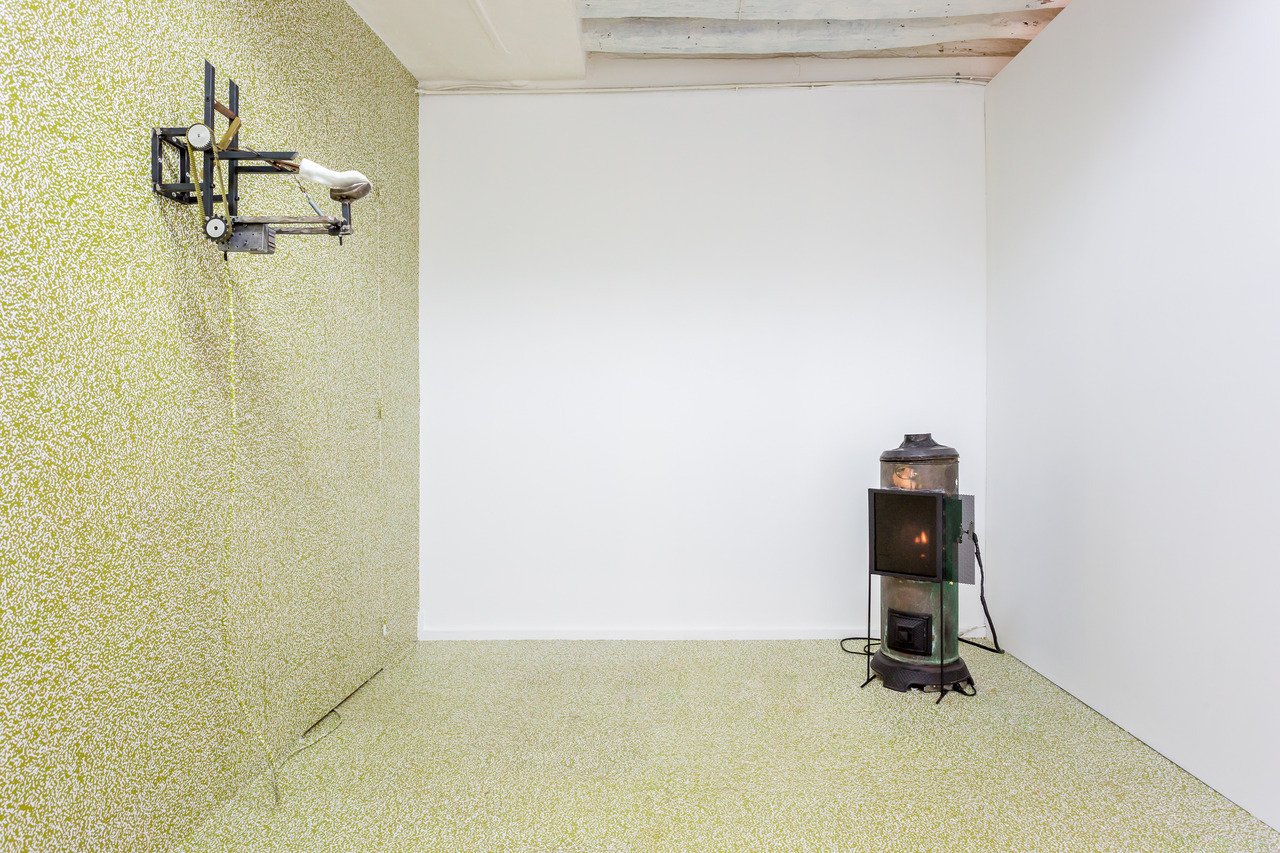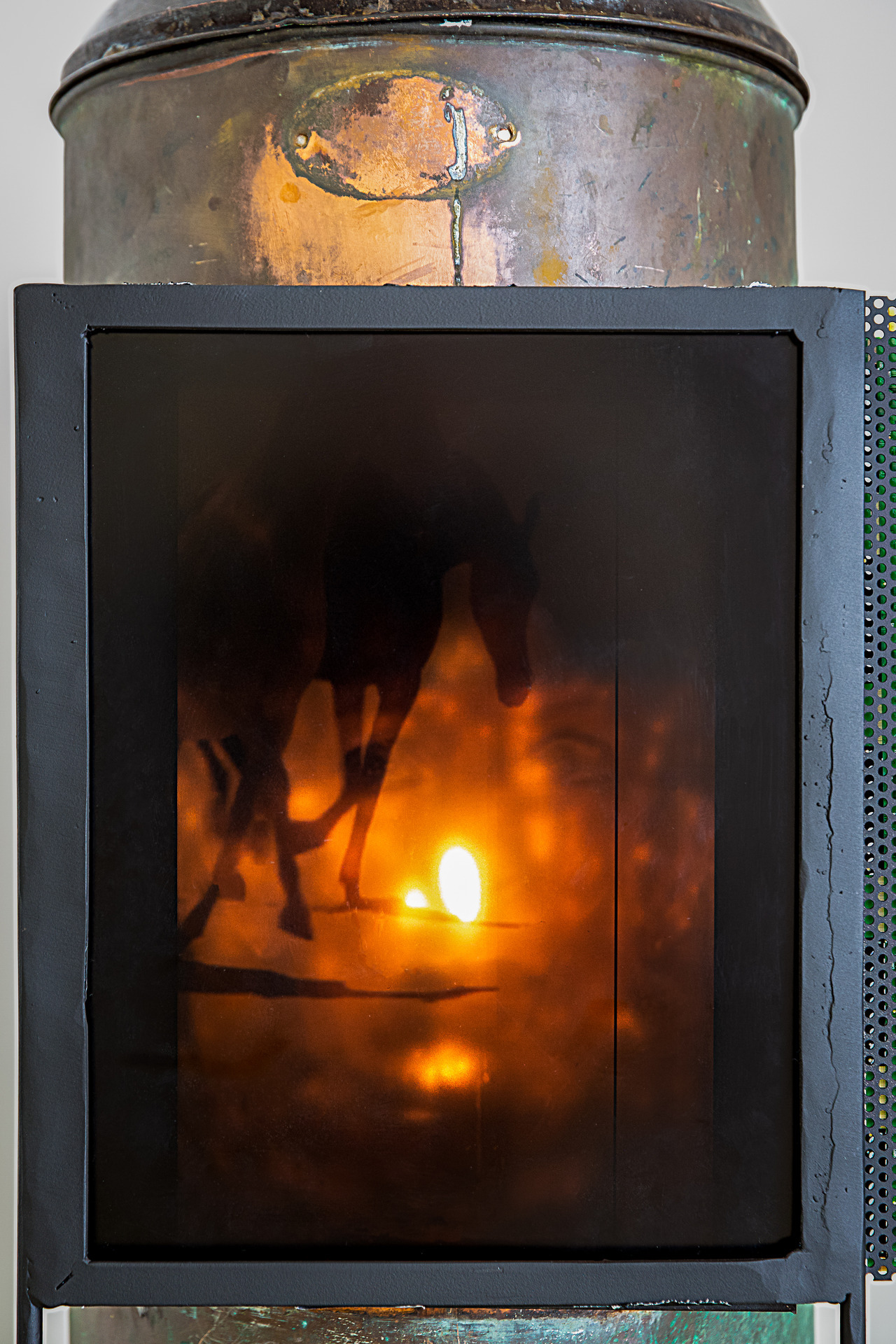It is through the work of the artist Zazzaro Otto that the curators Claudia Buizza and Pietro Della Giustina, members of the collective Curate It Yourself, opened the pathway for debate.
For his first solo exhibition in France, the young Italian artist takes the term "Poppyzon" as his starting point. Poppyzon comes from Ancient Greek and means "one who clicks their tongue". As the curators put it, "Ancient Greek and Latin are two ancient languages that are characterised by their efficiency and simplicity of expression, even when it comes down to complex concepts". They also explain that the objective of the artist "is to pay attention to a word that describes an action without a use, but which is strictly human nevertheless (we are composed of the superfluous just as much as of our intelligence).
The installation presented by Zazzaro Otto, which includes a moulding of a foal's tongue, aims to "reproduce a completely useless machine that tries to emulate a human behaviour that is useless and even slightly clumsy, and to denounce the failure of the machine in the imitation or the attempt to perfect and emulate human capabilities".
Within this installation, the piece Focolare Domestico presents to us the face of the woman who voiced Siri, Apple's virtual assistant. The artist was also interested in the evolution of social relations through objects and technology; fire, the wood stove, the television, the laptop screen, and the voice of Siri with whom we can interact.

Courtesy the artist and Rinomina. © Davide Leggio
Happening wanted to learn more through interviewing the artist, but also publishing Siri's responses to the questions.
Technology has allowed even the village idiot to have a voice and to be heard by anyone who will listen. This provides a platform for stupidity and ignorance. The idea here is to focus on the "limits of technology and its downfalls, and the impoverishment of language in our technological society". Is there not an inconsistency in saying that "creative geniuses are always indispensable since they are the ones who make mistakes" but at the same time denounce the possibility for everyone to express themselves and to be heard? Should we prioritise error?
Zazzaro Otto : There is no inconsistency because these are two unrelated questions that refer to very different situations. Creative geniuses are indispensable because they are the ones who make mistakes. In the creative process that is exclusive to human beings, it is possible to recognise the genuine error and, in that error, its individuality and uniqueness that comes from "thinking with the hands". Only human beings can work and create without a specific objective. A device works in the exact opposite way. The village idiot is limited to using technology as a pseudo-participatory tool to communicate their contribution to the best of their ability.
Thus everyone becomes Prime Minister or the Manager of the national team (the artist refers to the current political situation in Italy)
Siri : https://it.wikipedia.org/wiki/A_prova_di_errore_(film_1964)
What can we do to make people reconsider the superfluous? For it to become useful once again?
Zazzaro Otto : The term "superfluous" refers to the current diversity of useless services, like the app which reproduces the metropolitan noise of Manhattan. The superfluous is everywhere and you can buy it at any time. Myself, for example, I bought ice-cube trays in the shape of the Titanic... very little technology and utterly useless.
Siri : In all modesty I would say that, as an Intelligent Agent, I am not bad at all.

Focolare Domestico, 2018, mixed media — Courtesy the artist and Rinomina. © Davide Leggio
Finally, is your conclusion nostalgic or optimistic? Is it a difficult moment? The more advanced technology becomes, the closer it gets to becoming human and the more errors it will make. What is its purpose?
Zazzaro Otto : It's hard to say. As far as I'm concerned, I am a nostalgic optimist. I would have liked to be born in 1946 to witness the progression of the post-war period. The spirit of conservation of the human being will surely save us from the ghostly Matrix, but perhaps since we Europeans are not yet subordinate to technology...
Siri : I am sorry Zazzaro Otto, I cannot do that.
Henri Robert









